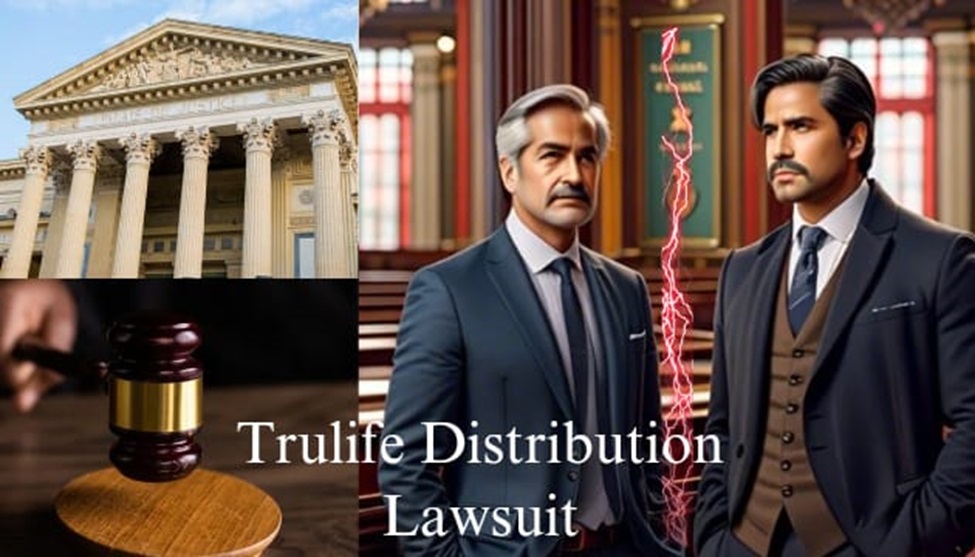The Edward Troncoso Florida lawsuit became a focal point for discussions about fraud in international business. This high-profile case revolved around allegations of a $70 million fraud scheme linked to oil and gas procurement. The plaintiffs claimed that Troncoso manipulated pricing systems, causing severe financial harm to foreign companies. Despite these allegations, the court finally decided in Troncoso’s favor because of jurisdictional issues and insufficient evidence.
The case highlights important concerns in international fraud litigation, such as the burden of proof and jurisdictional barriers. Businesses managing international operations might gain important insights by comprehending its specifics. It also highlights how crucial moral behavior and openness are to preventing such conflicts. This article explores the claims, the court proceedings, and the business lessons that can be learned from the case.
Who is Edward Troncoso?
Edward Troncoso, or Edward Brinkmann, is a businessman based in Naples, Florida. His primary focus was international procurement for the oil and gas industry. According to the lawsuit’s plaintiffs, he allegedly used his position to plan fraudulent schemes.
They said he created a middle-tier business network by utilizing his contacts and experience. These intermediaries allegedly allowed Troncoso to inflate procurement costs, enriching himself at the expense of his clients. Despite the gravity of these claims, Troncoso consistently denied any wrongdoing.
The Fraud Allegations: Key Details
The case revolved around allegations of a sophisticated $70 million fraud scheme. The plaintiffs, Petro Welt Trading of Austria and KAToil LLC of Russia detailed their claims in court filings.
Inflated Procurement Costs
Troncoso was accused of creating intermediary companies to artificially inflate the prices of essential goods and services. These intermediaries allegedly acted as middlemen, adding significant markups before the final transactions. The plaintiffs contended that this practice caused them to overpay millions of dollars.
Misuse of Position
The lawsuit claimed Troncoso exploited his position as a trusted procurement specialist. His access to confidential financial data and supplier information allegedly made it easier to carry out the scheme.
Financial Impact
The plaintiffs highlighted the substantial financial harm caused by the alleged fraud. They argued that inflated costs disrupted their budgets, hindered operations, and damaged profitability. This financial strain led them to seek legal action.
The Legal Process: Evidence and Arguments
The lawsuit involved a lengthy and complex legal battle. Both sides presented extensive evidence and arguments to support their positions.
Read also: Trajan Shipley Texas Lawsuit: Accusations and Legal Implications
Extensive Document Submissions
More than half a million documents, including emails, purchase contracts, and financial documents, were presented during the trial as evidence. The plaintiffs sought to prove a direct connection between Troncoso and the purported fraud.
Challenges of Jurisdiction
Jurisdiction was one of the case’s main concerns. According to Troncoso’s argument, the purportedly fraudulent transactions took place outside the US, raising questions about whether the Florida court had the authority to hear the case.
Burden of Proof
The plaintiffs struggled to meet the burden of proof required in fraud cases. They could not present conclusive evidence that the alleged scheme was executed within U.S. jurisdiction. This significantly weakened their claims.
The Court’s Decision
In March 2022, Judge Elizabeth Krier decided in support of Edward Troncoso. By rejecting all of the accusations made against him, the court’s ruling essentially ended the case.
Insufficient Jurisdiction
The court concluded that the purported actions did not take place in the US. This lack of jurisdiction compromised the plaintiffs’ legal basis.
Insufficient Evidence
Despite the volume of submitted documents, the plaintiffs failed to provide substantial evidence to support their claims. The court found no clear proof of fraudulent activities.
Dismissal of Allegations
The dismissal of allegations marked a significant legal victory for Troncoso. The court’s decision emphasized the importance of clear evidence and jurisdictional clarity in fraud cases.
Broader Implications of the Edward Troncoso Florida Lawsuit
The lawsuit illuminates key challenges in international fraud cases and underscores the need for businesses to maintain transparency and ethical practices.
Jurisdictional Complexity
Prosecuting cases involving multiple countries is inherently difficult. Jurisdictional challenges often complicate legal proceedings. This case demonstrates the importance of ensuring legal claims align with the appropriate jurisdiction.
Importance of Internal Oversight
Fraudulent activity can be stopped by strong internal controls. Businesses need to put oversight procedures in place to keep an eye on financial transactions and procurement.
Lessons for the Oil and Gas Sector
Because of its high transaction values, the oil and gas industry is especially susceptible to fraud. This instance emphasizes how the industry needs to be more accountable and transparent.
What Can Businesses Learn?
Businesses operating internationally can draw important lessons from this case. Ethical practices and strong oversight are crucial for avoiding legal disputes.
Conduct Regular Audits
Frequent audits help identify irregularities early. They ensure compliance with internal policies and external regulations.
Train Employees
Education is a powerful tool in fraud prevention. Employees should be trained to recognize and report unethical behavior.
Partner with Trusted Vendors
Reliable vendors reduce the risk of fraud. Conduct thorough research and establish clear agreements before working with suppliers.
Monitor Transactions
Monitoring transactions ensures that funds are used appropriately. Businesses should invest in systems that track spending and flag suspicious activities.
Why Was the Ruling Significant?
The ruling in favor of Edward Troncoso has far-reaching implications. It highlighted the challenges of pursuing fraud cases with international elements.
Emphasis on Evidence
The case underscored the importance of strong, clear evidence in legal proceedings. Without it, even well-documented allegations may not hold up in court.
Role of Jurisdiction
Jurisdiction played a decisive role in this case. The court’s decision reinforced the need for plaintiffs to file claims in the correct venue.
Precedent for Future Cases
The ruling set a precedent for similar lawsuits involving international business disputes. It demonstrated the legal complexities and high stakes of such cases.
Final Thoughts on the Edward Troncoso Florida Lawsuit
The Edward Troncoso lawsuit in Florida is a compelling example of the difficulties involved in international fraud litigation. Claims of a $70 million fraud plan raised serious concerns regarding ethics and transparency. The court’s decision to reject the case for lack of evidence and jurisdictional concerns highlighted the difficulties in substantiating such claims.
This case is a crucial reminder to businesses of the value of moral behavior, openness, and strong internal controls. Businesses operating internationally must ensure that local laws and international standards are followed. Risk mitigation requires careful transaction monitoring, frequent audits, and employee training.
Ultimately, the case emphasizes the importance of responsibility for international corporate operations. Businesses can protect themselves and their partners by prioritizing trust and integrity. These lessons are vital for navigating the complex and interconnected world of global commerce.


